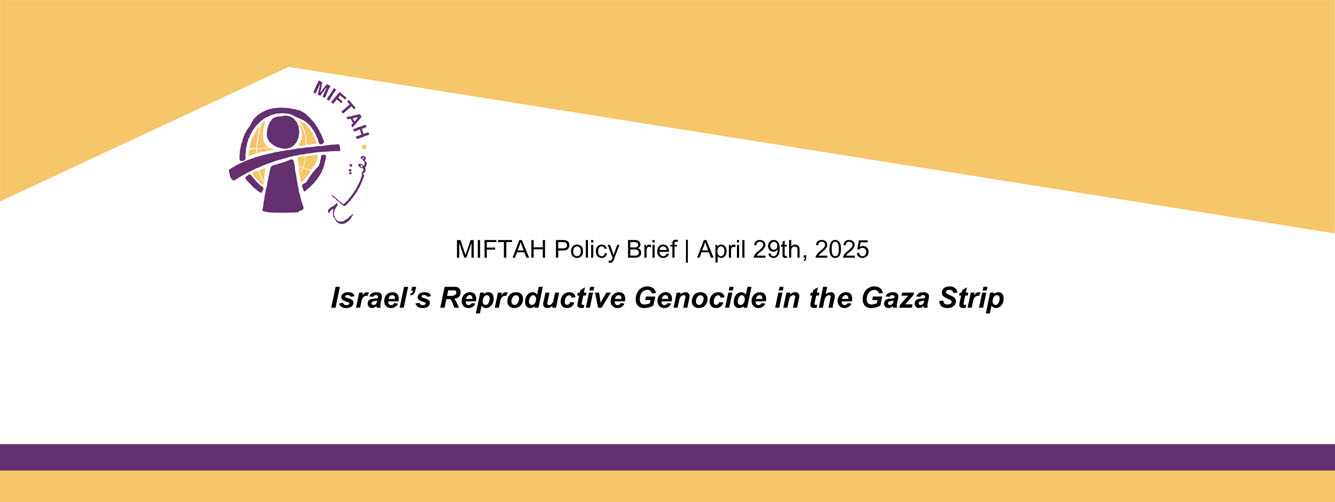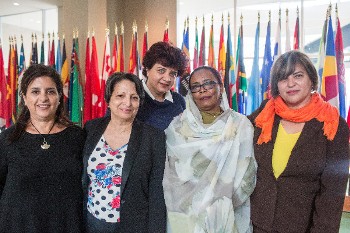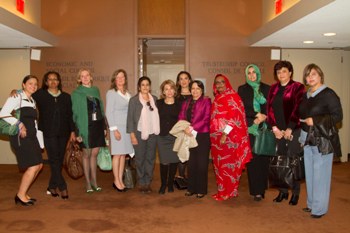The shocking human cost that occupation has taken on Palestinian women is laid bare in research published today. Combining research, extensive surveys, and first-hand testimonies from over 40 Palestinian women, Palestinian Women: The Disproportionate Impact of The Israeli Occupation provides new insight into the gendered experience of occupation, looking into four issues in particular:
- women refugees
- the impact of residency revocation on Palestinian women in Jerusalem
- the experience of women prisoners
- Gazans’ access to health
Co-authored by four Palestinian NGOs – the Palestinian Initiative for the Promotion of Global Dialogue and Democracy (MIFTAH), Palestinian Working Woman Society for Development (PWWSD), the Women’s Centre for Legal Aid and Counselling (WCLAC), and Women Media and Development (TAM), the report includes detailed findings that demonstrate how the oppression occupation has permeated women’s daily lives, and the particular impact is has had on women in Palestinian refugee camps, Palestinian women living in Jerusalem, women prisoners, and residents of Gaza who require health services.
The impact on refugee women
Researchers spoke to 500 Palestinian refugee women from 12 Palestinian camps (7 in the West Bank, 5 in Gaza). Their findings included the following:
- A third of women surveyed had been directly exposed to physical assault by Israeli Occupation Forces. 9% had been exposed to threats of being attacked by police dogs during Israeli night raids on their homes.
- Over a third (37%) of respondents had been exposed to detention or interrogation, while 38% said that they or members of their households had been exposed to verbal abuse during Israeli army raids, at checkpoints or while visiting religious places.
- Nearly a quarter (24%) were forced to live in shelters or with extended family. 22% were forced to live under unhealthy conditions. 13% stated that the female and male members of their families were separated as a result of having to live in shelters.
- More than one in five (21%) had been exposed to beatings or tear gas at Israeli checkpoints while they were pregnant. 4% reported that they aborted or gave birth at Israeli checkpoints.
- The majority (64%- 321 cases) had been unable to visit religious or recreational places because of Occupation restrictions.
Jerusalem: Residency Revocation and Family Reunification
According to official figures, 14,595 Palestinians from East Jerusalem had their residency status revoked between 1967 and the end of 2016.
Through residency revocations, Israel has separated husbands from wives, parents from children, and extended families from one another, causing traumatic complications for women attempting to remain with their families in both Jerusalem and the West Bank.
This leads to traumatic fears of separation from children for mothers and an entrenching of patriarchal practices across society. Palestinian women living in Jerusalem lose residency rights if they get divorced or their husbands remarry. Limiting their access to justice, female victims of domestic violence fear reporting abuse to authorities in case they are forcibly transferred away from their children.
Women prisoners
Since the beginning of the Israeli Occupation of Palestine in 1967, approximately 10,000 Palestinian women have been arrested and detained by Israeli military forces. According to the Commission of Detainees and Ex-Detainees Affairs’ 2017 annual report, 1,467 children were arrested last year.
Our researchers spoke to prisoners who experienced physical and psychological torture at arrest and imprisonment, and traumatic, gendered treatment, including:
- Women denied access to menstrual products while detained
- A woman arrested while pregnant who gave birth while chained to a prison hospital bed
- Ex-prisoners who report being subjected to rape and death threats during interrogation, including a girl in of 15-years old threatened with rape
- Women who were subjected to frequent forced and violent strip searches
- A prisoner who reported toothache, only to have the wrong tooth removed
Access to Health in Gaza
Israel exercises strict control Gaza’s borders, a policy of ‘actual authority’, constituting continued occupation, despite the withdrawal of its permanent presence. This control in particular affects those who need medical treatment outside of Gaza’s struggling health system, who require permission to leave. The report shows that the rate of approval applications is falling year-by-year:
- 92.5% of applications were successful in 2012
- 88.7% in 2013
- 82.4% in 2014
- 77.5% in 2015
- 62.1% in 2016
Of the 26,282 permit applications submitted by patients aiming to exit through Erez in 2016, 8,242 (31.4%) were delayed. Many applicants received no response from border authorities, even after lawyers filed formal applications on their behalf. These delays regularly extend months and years beyond medical appointments, worsening already life-threatening diseases and in some cases resulting in death.
Read the full report here, or download it here:
Palestinian Women – The Disproportionate Impact of the Israeli Occupation









